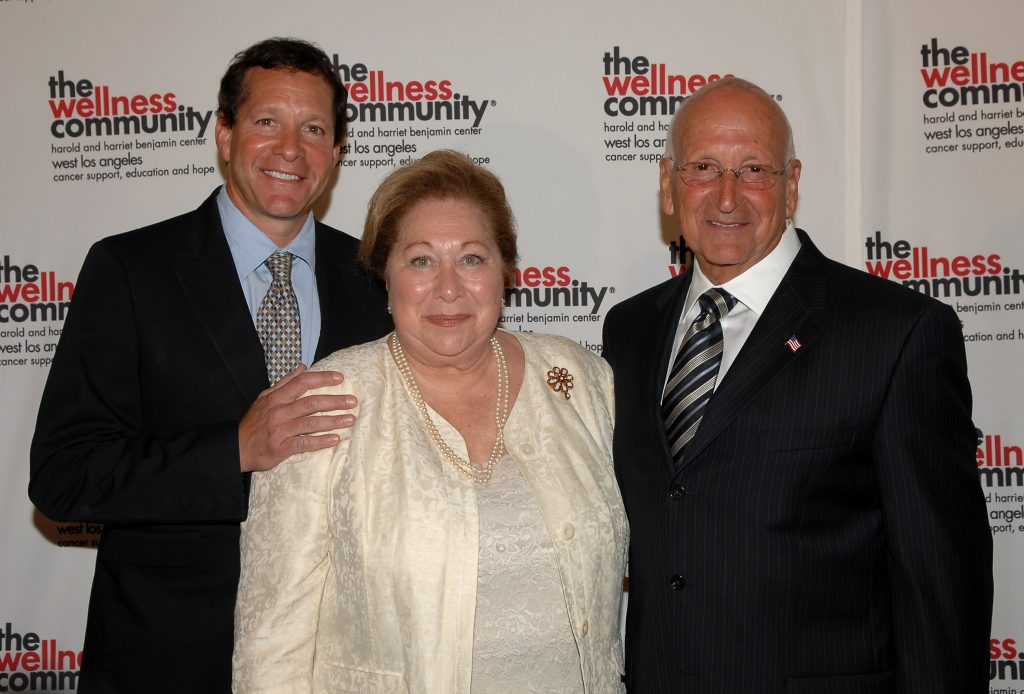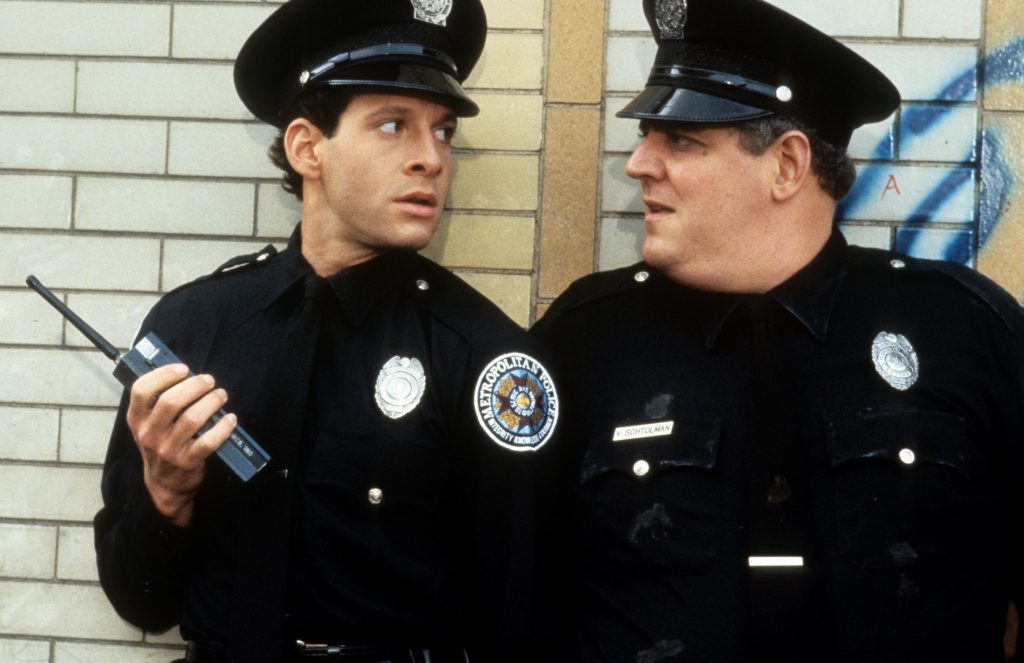Caregiving for His Hero
- Actor Steve Guttenberg, 65, most known for the 1980s film series Police Academy and the 1987 flickThree Men in a Baby, has documented the transformative experience of caregiving for his late father after his 2018 kidney disease diagnosis.
- In the native New Yorker’s new memoir Time to Thank: Caregiving for My Hero, he recounts all of the meaningful things his father Stanley Guttenberg has contributed to his life, which culminated with his son at his bedside in his final days.
- Being a caregiver is one of the most significant and challenging experiences that a human can go through, and it’s important to not forget about your own health as you dedicate a large part of your life to serving another.
- If you are caregiving for someone with cancer or another serious illness, this SurvivorNet guide can help you through.
In the native New Yorker’s new memoir Time to Thank: Caregiving for My Hero, he recounts all of the meaningful things his father Stanley Guttenberg has contributed to his life, which culminated with his son at his bedside in his final days. Steve had been driving from Los Angeles to Phoenix every week to take his dad to dialysis, which is the treatment needed for people whose kidneys are failing, according to Cleveland Clinic.
Read MoreView this post on Instagram
“He was my greatest teacher,” the Three Men and a Baby star added.
Steve shared that he and his sister Susan trained to be dialysis techs so that their dad could be treated in his own home.
“We trained on a thin rubber hose at night to make sure the needle didn’t go out on the other side,” he recalled. They also trained directly on their dad with a tech’s assistance during the months-long prep to learn how to administer the treatment.
“Sometimes you’ll do things for your loved one you never thought you’d do,” Steve said, urging that people should take every opportunity to care for their loved one at home.

Well before his father became sick, Steve attended a 2007 event called “A Tribute to the Human Spirit” with his parents, where they posed for a happy family photo on the carpet at the Beverly Hills Hotel gala. All decked out in formal wear, Steve appeared proud as he stood next to his mother Ann with his hand placed on her shoulder as Stanley stood next to them smiling in a dark pinstripe suit.
Reflecting on countless other memories weaved in with his caregiving journey, Steve’s hope is that his writing can help other caregivers as they take on such a crucial and difficult role for the ones they love.
“So, I wrote this book, and it’s for the caregivers,” he said in an earlier interview with PEOPLE. “You know, in this country, there are 35 million who take care of their parents. They’re an unsung group because they’re never together. You’re always separate. There are blogs to sort of connect, but that’s it.
“So, when you’re a caregiver, it’s very lonely. So, I wrote a book for all the caregivers in this country. I think that’s going to be powerful.”
His father’s dying request was that his son — who stopped acting to care for him — start working again. And that is what he intended to do.
The Guttenbergs’ Early Life
Stanley, according to an online memorial, was a US Army Ranger and held a Bachelor degree in Electrical Engineering from City College in New York and a Bachelors of Professional Studies in Accounting from Lynn University in Boca Raton, Florida.
Steve, who grew up with his sisters Judi and Susan, was born in Brooklyn and then the family moved to Flushing, a neighborhood of Queens.
After another move, Steve went to high school further out on Long Island in Massapequa. He was 17 when he trekked out to Los Angeles to pursue his TV and film career.

“As a tradition and as a culture, [Judaism’s] been a huge part,” Steve told The Times of Israel of his Jewish upbringing.
“My family didn’t observe Friday nights, but my father was kosher… I was bar mitzvahed, and then when I went out to California when I was 17, I found the temple to be a great respite for me, especially from the loneliness.”
Stepping Up as a Caregiver
A caregiver can be a partner, parent, child, friend, or neighbor. But it should be someone who is willing to put in the time and effort to understand the diagnosis, and follow the medical team’s recommendations.
“I encourage caregivers to come in to visits with my patients, because in that way, the caregiver is also listening to the recommendations — what should be done in between these visits, any changes in treatment plans, any toxicities [side effects] that we need to look out for, changes in dietary habits, exercise, etc.,” Dr. Jayanthi Lea previously told SurvivorNet.
“The work is extremely hard.”
How to Be a Better Caregiver for Your Loved One
Caregivers should be willing to share what they’ve learned while caring for their loved one day to day, letting the doctor know about any side effects or other problems that arise.
They also need to be willing to take a backseat sometimes. “Step back a little bit and let the patient speak for themselves. Let them express what they are feeling,” said Dr. Lea. “That is so important for the patient’s overall quality of life and well-being.”
Learning How to Ask for Help as a Caregiver
With the role of caregiver, the first thing to understand is that there is no shame is asking for help. This can be an overwhelming time for both patients and their caregivers, too.
Through interviews with expert advisors, social workers, patients advocates, and more, we’ve come up with a checklist of helpful steps caregivers can take throughout the journey.
‘A Sacred And Blessed Calling’: Managing Life As a Caregiver
Here is a list of duties that caregivers help take on:
- Attend doctor visits with the patient
- Help the patient take notes/ask questions
- Provide transportation to and from treatment
- Accompany the patient during treatment
- Help keep track of side effects
- Link up with a social worker/patient navigator
- Help with day-to-day activities
- Provide emotional support
Social Workers/Patient Navigators Can Help
Social workers or patient advocates can be a huge help for caregivers.
As a caregiver, you may want to enlist the help of one of these employees who often work for medical centers for guidance on treatment options, financial assistance, where to seek mental health resources, and so much more.
Patrick Dempsey’s Critical Advice for Caregivers: ‘Take Care of Yourself’
“Patient navigators can function differently at different hospitals,” Dr. Kathie-Ann Joseph, a surgical oncologist at NYU Langone Health’s Perlmutter Cancer Center, told SurvivorNet.
“We have a really wonderful program at [NYU] where we used lay navigators meaning they’re not nurses, although you can use nurses or social workers that pretty much help newly diagnosed cancer patients through the continuum of care.”
Learn more about SurvivorNet's rigorous medical review process.

